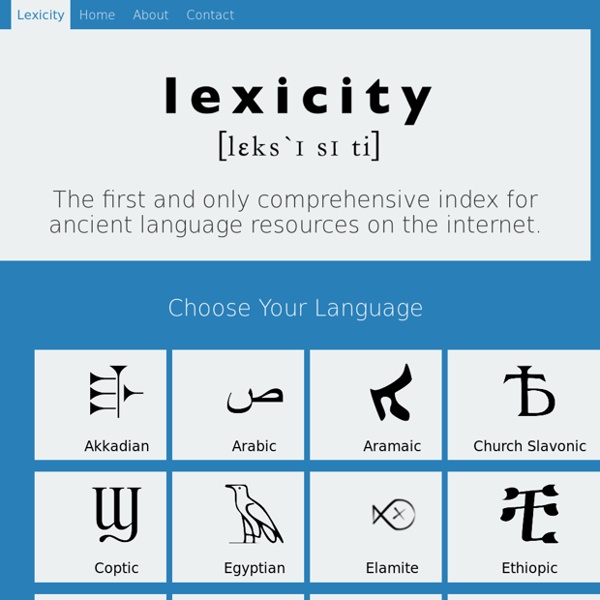



TuneTranscriber. Ralentir la lecture d’un passage. Article mis à jour le 29 septembre 2014 par Fidel Navamuel TuneTranscriber est un outil en ligne qui permet très facilement de jouer avec des fichiers audio. Un outil qui privilégie la simplicité mais qui peut transformer votre ordinateur en véritable laboratoire de langues ou encore en un répétiteur infatigable pour apprendre la musique. TuneTranscriber propose un lecteur de fichiers audio qui offre entre autres options de ralentir la lecture d’un son ou d’une vidéo.
WordBrewery. Améliorer son vocabulaire dans une langue étrangère Mise à jour avril 2019 : Malheureusement WordBrewery n’accepte plus de nouveaux comptes. WordBrewery est une plateforme en ligne qui va vous aider à développer votre vocabulaire de base dans une langue étrangère. Elle s’appuie sur des phrases extraites chaque jour d’articles de presse. Comment pratiquer une langue avec des phrases de tous les jours quand on n’est pas immergé dans la réalité d’un pays ? WordBrewery offre une réponse avec une application Web d’apprentissage des langues originales qui se base sur l’actualité d’où sont extraites de petites phrases permettant d’apprendre ou de réviser le vocabulaire de base de la langue étudiée. WordBrewerry a calculé que les 2 500 mots les plus courants dans n’importe quelle langue représentent 95 % du vocabulaire quotidien.
Et voilà pourquoi l’allemand met le verbe à la fin - Le Temps Le Temps: Dans votre livre* «Penser entre les langues», vous écrivez, à propos du «Hochdeutsch»: «Cette langue qui, pour être parlée, suppose que les locuteurs soient libérés de la contingence des affects.» C’est exactement l’argument avancé par les Alémaniques pour défendre leur emploi du dialecte. Les Allemands parlent-ils donc aussi le dialecte en famille? Heinz Wismann: Par Hochdeutsch, on désigne la langue allemande codifiée, imposant le respect strict de ses règles syntaxiques. Et j’observe qu’à partir du moment où, entre deux locuteurs, l’affect s’en mêle, où la tonalité de l’échange devient plus familière, la syntaxe est malmenée. Mais cela ne veut pas dire que tous les Allemands parlent en famille un dialecte comme en Suisse.